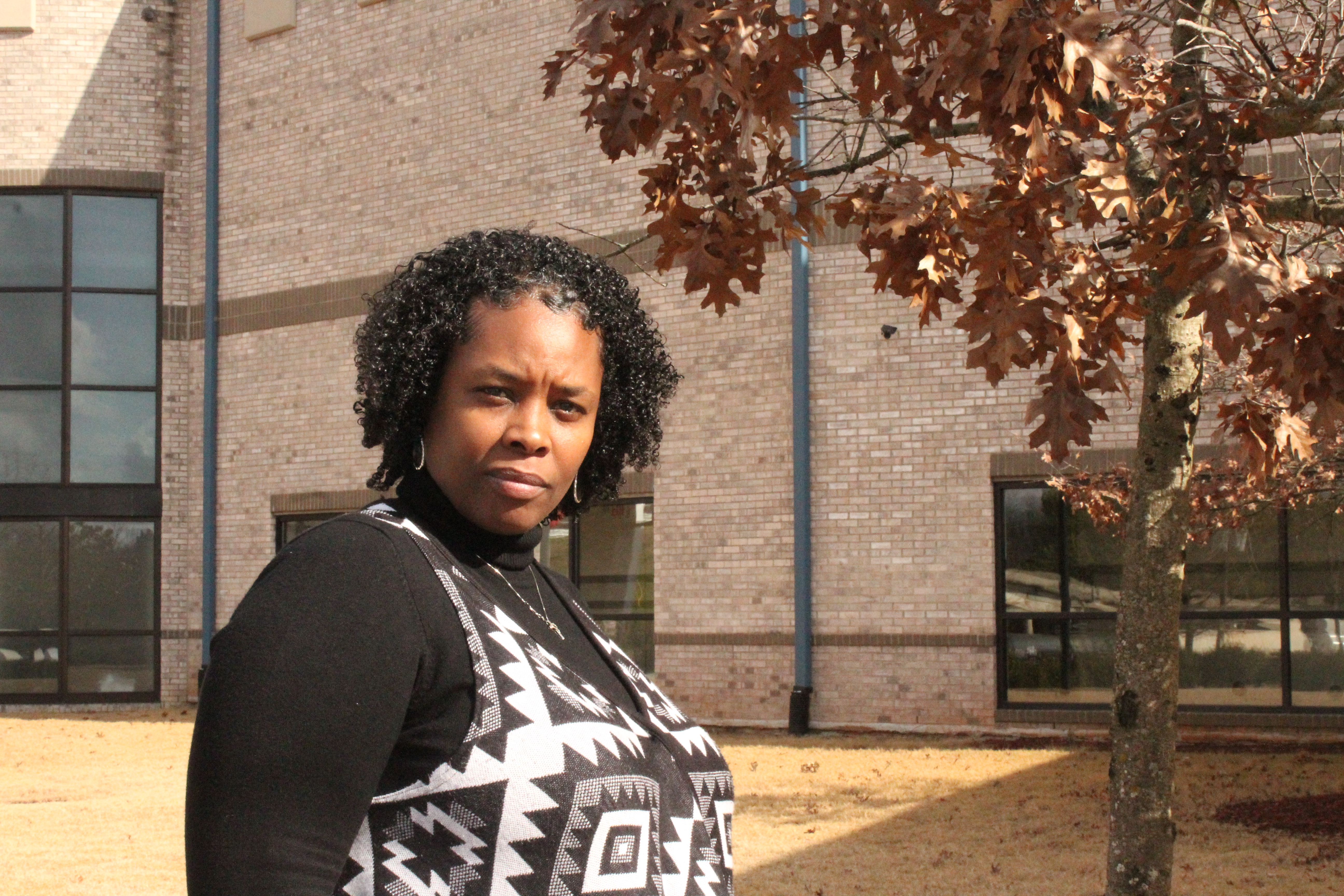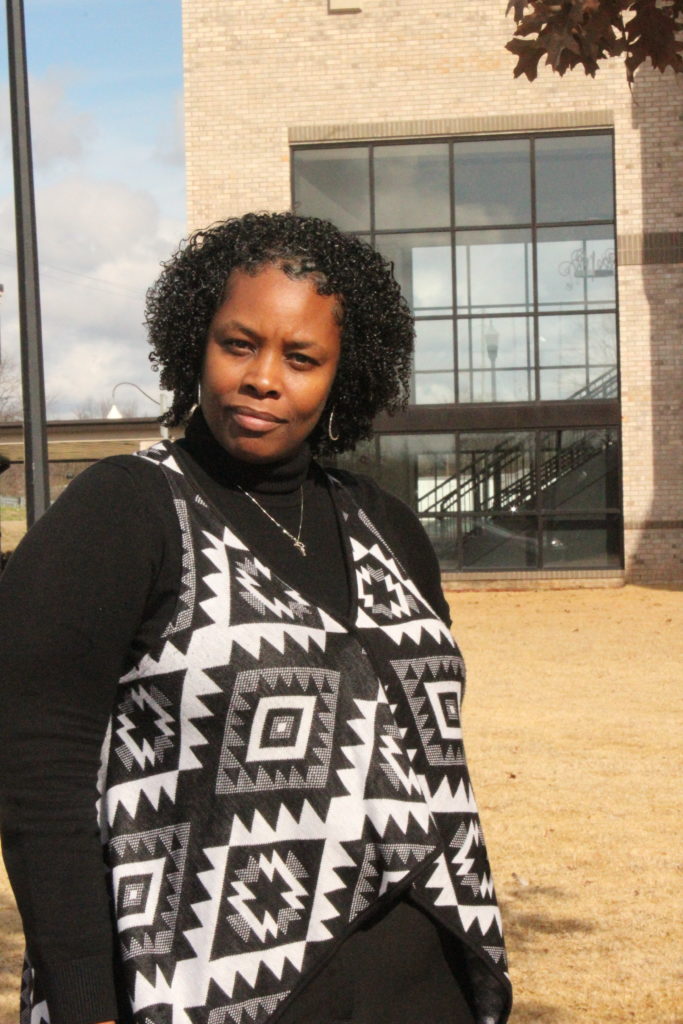
By Ariel Worthy
The Birmingham Times
Chernell Bizzell-Barnett wants to reach a group of women often forgotten when it comes to counseling.
“I go after the stuff that everyone’s afraid of,” she said. “I really want to push my focus on three specific areas: survivors of incest, survivors of statutory rape, and noncustodial mothers. There are not a lot of services available, and a lot of noncustodial mothers fall within the first two categories.”
Bizzell-Barnett, 41—a counselor at Magic City Counseling and the counselor case manager at Greater Shiloh Missionary Baptist Church—is aggressive about self-care for three reasons.
First, as someone who has suffered from trauma, she knows what it’s like to have a lack of support.
“Sometimes negative things can be building blocks for the foundation of where we’re going,” Bizzell-Barnett said. “In my deepest time of need no one was there, and that was so eye-opening for me. I spoke to God and said, ‘If you ever give me a shot to get my life together, I’m going to be intentional about keeping my life together.’”

And Bizzell-Barnett did just that: she attended the University of Alabama at Birmingham (UAB), where she earned a bachelor’s degree in African-American studies and a master’s degree in counseling.
Bizzell-Barnett’s second reason for being so serious about self-care: personal experiences, including her affiliation with a 12-step program that enabled her to become drug-free.
“It made sense to me,” she said. “If I don’t take care of myself, I’ll be like a hamster on a wheel, doing the same thing and expecting different results.”
The third reason Bizzell-Barnett embraces and encourages self-care is a common one that she has seen in others: “Working a job where you give your all and at the end of the day they say, ‘We have nothing else for you.’”
“They don’t care about whether your family eats, whether your bills are paid,” she said. “People will push you as far as you let them, and we have to pump the brakes for our own lives.”
“One Chance to Be Me”
Bizzell-Barnett does not allow late nights to happen: “I sign up to do eight hours a day, and that’s it.”
She realizes that it might sound selfish to some, but it’s an important step to make sure she is well.
“The reality is that there is only one chance to be me,” Bizzell-Barnett said. “I can’t sign up for another life. When it’s done, it’s done. That means I have to be very protective of how I see about myself and how I use my time.
“There are lots of people who love us, but there is nobody on this planet who can love us more than we love ourselves. There is nobody on this planet who can take care of us better than we can take care of ourselves.”
Bizzell-Barnett wants her clients to understand that. For many, however, self-care is a foreign concept.
“Self-care. What does that mean?” she said. “Even in our culture we are taught to give until we are exhausted. So, to take this mindset that, ‘Oh, wow, I’m supposed to give myself some care?’ For some people, it takes some time to get used to.”
The Importance of Self-Care
In the black community, self-care is especially important, Bizzell-Barnett said.
“If you look at the research, all these different illnesses that [African-Americans] deal with are related to stress, related to racism, related to poverty. All these issues make us ill,” she said. “Historically, we come from slavery, Jim Crow, a work-yourself-to-the-bone mentality. [We’ve been told that] if you even think about caring for yourself you’re selfish. As a result, we see a lot of African-Americans with mental-health issues related to stress, and obviously physical illnesses and broken relationships. … We have the right to take care of ourselves, regardless of what history has said. We have the right to have a balanced life without feeling guilty about it.”
Bizzell-Barnett said black women, especially, need to realize the importance of self-care.
“Black women have a legacy of strength, and at the same time that’s out of balance,” she said. “To be super-strong all the time is problematic because there has to be a time where we’re not responsible for everything, a time when we don’t have to run it all.”
Strength is internal, Bizzell-Barnett said: “We don’t have to carry every bag to be strong. We cannot carry the whole world and still be strong. My strength is not just what I can do; it’s how I feed it. Black women need to give themselves permission to take care of themselves. We don’t have to run ourselves into the ground to be important. That’s out of balance.”
Not About Money
Self-care has nothing to do with money at all.
“You can encompass self-care with money, but real self-care is internal work,” Bizzell-Barnett said. “It’s knowing when to shut things down. It’s knowing when to cut things off. It’s knowing when to start up. It’s knowing that life balance.”
Self-care can include spa visits, but that’s not the case for everyone.
“For those people who have to choose between the grocery store and bath salts, it doesn’t have to be the spa,” Bizzell-Barnett said. “It can be turning your phone off for two days. It can be not watching any TV shows with violence or tragedy. It’s individualistic. Just like a treatment plan that is individualistic, self-care is too.”
For Bizzell-Barnett, self-care is shutting the world off: “Not being responsible for the weekend. Not working.”
“You don’t have to fly to Tahiti,” she said. “That’s great, if you can and do, but self-care for the girl in the hood might look like sitting down and writing goals for herself or not hanging with her friend who always talks about gossip.”
“Life Is a Beast”
When it comes to self-care, mental health is just as important as physical health.
“Mental health has such a negative stigma,” Bizzell-Barnett said. “We know we have a mind, and it’s battling things all day long. People who have suffered trauma know that their brain changes.”
So how do we address it?
Bizzell-Barnett offered this advice: “We deal with all these things on a daily basis, and if we don’t take time to sort through them we can see the illness seeping in. We have to do little creative things on a daily basis to deal with that. Work stress can turn into a deep depression if we don’t do that. Identify the problem and how you can deal with it, whether it’s talking to a homegirl or going to see somebody.
“Mental health is just as important as eating food and drinking water. Our bodies get tired, and we can sleep that away. But we take daily beatings on our minds in different ways, and that can get to us if we don’t address it. If you don’t take care of it on the front end, you will have to address it on the back end. Humble yourself and address it early on.”
“Mental health care does not mean you’re crazy. It means you understand that life is a beast, and you have to take time to examine the blows you’ve taken.”




